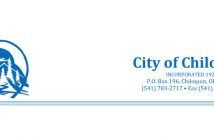Source: Pixabay.com
We’ve all been there. A meeting meant to last 20 minutes ends up running for an hour. Worse still, despite stretching well beyond the intended time, it may still be unclear whether the initial objectives of the meeting were actually met. Meetings are part and parcel of running a business but few people look forward to them.
Part of the reason for the unpopularity of business meetings is how much they can disrupt one’s day with little to show for it in return. Being good at organizing meetings is a skill that you have to perfect over time. Here are a couple of tips to help you make sure your meetings are efficient.
1. Prepare
Want to know the reason most meetings fail? Preparation. If the convener or participants do not do their homework on the issues to be discussed, the meeting will go round in circles due to the absence of conclusive answers to matters raised. When organizing a meeting, you need to answer two key questions.
First, what tools will be needed? A projector, erase board, laptop, handouts are examples of items that could come in handy. Second, who should attend? Few things are more annoying than being invited to a meeting where your input or action isn’t required. To avoid wasting anyone’s time, think carefully about who you’ll invite. Make sure the agenda circulated to attendees beforehand makes clear what is expected of each person at the meeting.
2. Keep Time
This is important for all meetings but more so regular ones. One of the easiest ways to see waning enthusiasm for regular meetings is a failure to keep time. Lack of punctuality creates a vicious cycle where people who come in time but have to wait because the meeting eventually starts late see no need to come early the next time, if at all.
When organizing the meeting, don’t just pay attention to the start and end time. Take note of what time you want each discussion point to start and how long it should last. Only include in the meeting agenda topics that require the presence of all attendees. Matters that can be discussed and resolved in one-on-one sessions should be scheduled for after the main meeting.
3. Shake Up Regular Meetings
If you organize weekly or biweekly meetings that cover a similar subject each time, explore ways of minimizing predictability. Predictable is boring and can make it hard to keep attendees involved even when the agenda is clearly laid out and followed to the letter.
Shake up the sequence of how topics are covered. You could even take a step back and rotate meeting coordination so you have someone different running the show each time. Take note of any feedback attendees provide on how meetings can be improved and where necessary, implement these suggestions in future meetings.
4. Maximize Informal Meetings
Many meetings are actually not required. The issues scheduled for discussion could probably have been better ironed out via a less formal session. Coffee, water breaks and lunch breaks are often greatly underutilized as a setting to share information or communicate an instruction to a colleague.
If all you intend to do is tell a team member to do a specific and straightforward task, you don’t need to organize a formal meeting for that.
5. Create Incentives
Some large corporations provide fairly extravagant incentives for their staff to attend important meetings. Some will go as far as providing tickets to Broadway concerts. You don’t have to spend that much though especially if you are part of a small organization. Instead offer breakfast during an early morning meeting or drinks and light snacks after an evening meeting.
Whether they are employees hired by your company directly or are staff acquired through a PEO such as Digital Exits, meeting attendees will see these incentives as a statement that you do care that they took their time to come.
Meetings are just like every other component of your business. The more you plan and think through it, the more successful and productive your meeting is bound to be.





